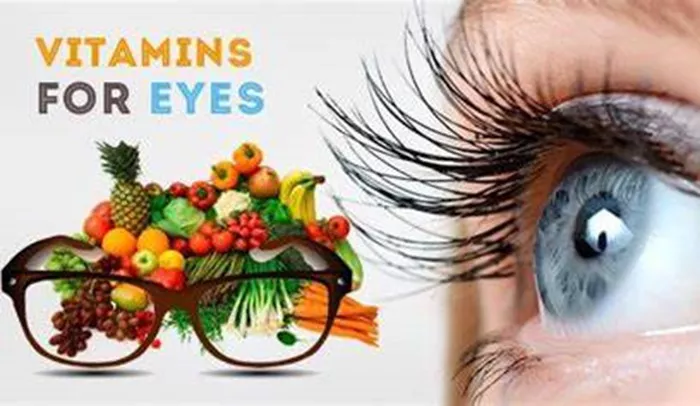Maintaining optimal eye health can be challenging, especially when our diets fall short of providing all the necessary vitamins and nutrients. Fortunately, supplements can help bridge these nutritional gaps, enhancing vision and reducing the risk of eye diseases. Here, we outline six key vitamins and supplements that can support your eye health. It is crucial to consult a healthcare professional before introducing any new supplements into your routine.
Key Vitamins and Supplements for Eye Health
Incorporating these vitamins and supplements into your daily regimen can significantly benefit your eye health. Most of these supplements are affordable, typically costing less than $10.
1. Vitamin A
Vitamin A is essential for maintaining healthy vision, supporting the immune system, and promoting overall growth and development. It aids in the perception of a full spectrum of light by producing pigments in the retina and prevents dryness in the eyes. Sources of vitamin A include:
- Salmon
- Broccoli
- Fortified breakfast cereals
- Eggs
- Carrots
2. Vitamin C
Known for its protective qualities, vitamin C acts as a natural sunscreen for the eyes, shielding them from harmful UV rays. Prolonged sun exposure can lead to irreversible damage, including cataracts, which cloud the lens of the eye. While recent studies indicate vitamin C supplementation may benefit those already deficient, more research is needed to clarify its role in cataract prevention. Foods rich in vitamin C include:
- Kale
- Broccoli
- Brussels sprouts
- Oranges
- Lemons
- Strawberries
3. Omega-3 Fatty Acids
Omega-3 fatty acids are recommended by optometrists for their role in promoting eye health. Found primarily in fatty fish such as tuna, salmon, and mackerel, as well as nuts and seeds, these nutrients are linked to slowing the progression of age-related macular degeneration and preventing dry eye disease due to their anti-inflammatory properties. Sources include:
- Tuna
- Salmon
- Mackerel
- Herring
- Chia seeds
- Flaxseed
- Walnuts
4. Vitamin E
As a potent antioxidant, vitamin E is vital for cellular health and functions. It helps protect the body from free radicals, which can cause cancer and other diseases. Studies suggest that vitamin E may slow the progression of age-related macular degeneration. Recommended daily intake is around 400 IU. Food sources include:
- Sunflower seeds
- Almonds
- Peanuts
- Collard greens
- Red bell peppers
- Mangoes
- Avocados
5. Zinc
Zinc is a crucial nutrient found in many multivitamins due to its importance in immune function and wound healing. It plays a significant role in eye health by aiding in the creation of melanin, which protects the eyes, and may help mitigate age-related macular degeneration. The American Optometric Association suggests a daily intake of 40 to 80 mg. Foods high in zinc include:
- Meat
- Shellfish
- Chickpeas
- Lentils
- Pumpkin seeds
- Cashews
- Almonds
- Eggs
- Cheese
- Milk
6. Lutein and Zeaxanthin
These carotenoids, known for their antioxidant properties, are found in brightly colored fruits and vegetables. They protect the eyes from damage caused by free radicals and may help prevent age-related macular degeneration. Recommended daily amounts are 10 mg of lutein and 2 mg of zeaxanthin. You can find these carotenoids in:
- Kale
- Spinach
- Peas
- Broccoli
- Orange juice
- Red peppers
- Honeydew melons
- Grapes
Important Considerations
While most vitamins and supplements are considered safe for consumption, it is essential to consult a healthcare provider before starting any new regimen. Some supplements may interact with medications, and those who are pregnant or breastfeeding should seek professional advice.
Additional Eye Health Tips
In conjunction with vitamins and supplements, consider the following practices to enhance your eye health:
Wear Sunglasses: Protect your eyes from harmful UV rays to reduce the risk of cataracts and other eye conditions.
Take Screen Breaks: Follow the 20-20-20 rule: every 20 minutes, look at something 20 feet away for at least 20 seconds.
Stay Physically Active: Regular exercise may help prevent eye damage, although further studies are needed.
Avoid Smoking: Smoking is linked to an increased risk of vision loss and eye diseases.
Get Regular Eye Exams: Routine check-ups can help identify potential issues early. Frequency of exams should be based on age—every five years for those aged 20-39 and every one to two years for those 65 and older.
Remove Makeup Before Bed: Proper eye hygiene can prevent irritation and inflammation.
Disclaimer: This article is intended for educational purposes only and should not be taken as medical advice. Always consult with a healthcare provider regarding any medical conditions or health goals.
Related Topics
How Much Cardio to Do When Cutting: A Comprehensive Guide


































